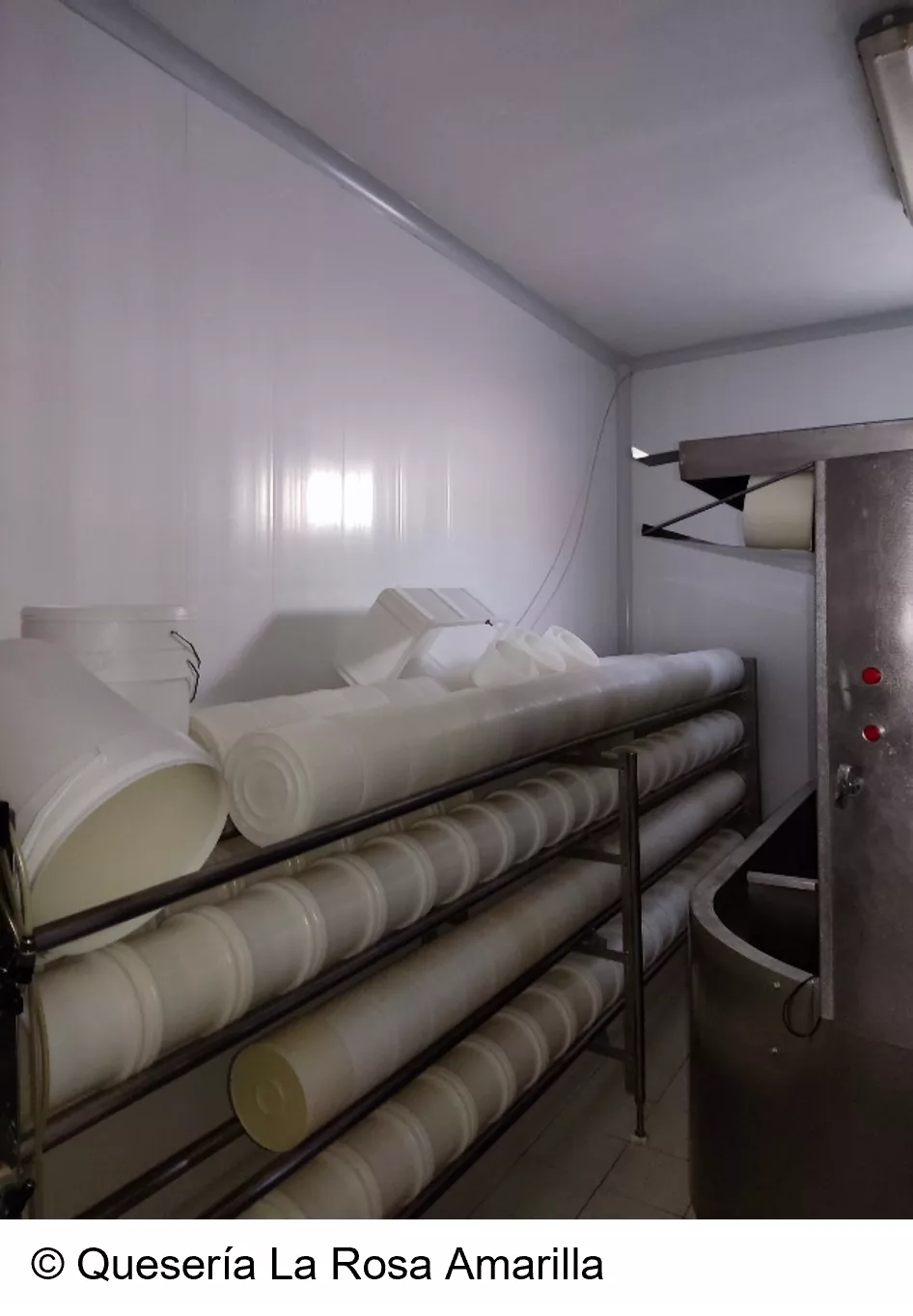General information
RDP Priority
- P3. Food chain and risk management
RDP Focus Area
- 3A: Agri-food chain integration & quality
RDP Measure
- M04: Investments in physical assets
Summary
La Rosa Amarilla is a dairy production company based in Chinchón, near Madrid. After learning about the availability of CAP investment support, the owners decided to apply for aid in order to improve the facilities of their cheese factory. The RDP support was used to renovate the walls of the workshop and those that surround the milk tank, as well as for the enlargement of the warehouse.
Results
- The new walls are less costly to maintain and easier to clean. The hygienic and sanitary conditions of the production have been improved.
- A better exploitation of the facilities has also been achieved thanks to the enlargement of the warehouse.
Promoter
Quesería La Rosa Amarilla
Funding
Total budget 11 917.00 (EUR)
EAFRD 2 066.06 (EUR)
National/Regional 1 832.16 (EUR)
Private/own funds 8 018.78 (EUR)
Topics
Resources
Documents
EU CAP Network - Good Practice - Cheese factory 'La Rosa Amarilla'
(PDF – 521.71 KB)
Context
La Rosa Amarilla is a family business. The founders were a married couple from Consuegra, a small village in Castilla La Mancha, and moved to Chinchón, near Madrid, in search of pasture for their livestock. They settled in a farmhouse on a property called ‘La Jara Baja’ and began producing pure sheep's milk cheese according to their family’s traditional recipe. The brand name ‘La Rosa Amarilla’ (‘the yellow rose’) was born from the typical ‘flower’ mark left on the cheese’s side by the braided esparto grass ribbons and wooden boxes used to mould them. In the 1990s, the founders acquired their own land in the fertile plain of Chinchón, extending the facilities they had in La Jara Baja.
After the founders retired, their four sons continued the activity, becoming the sixth generation of cheesemakers in their family. They make cheese products primarily for local sale, but also for distribution throughout Spain. The company has won several prizes in international cheese competitions.
The request for investment in the processing, marketing and development of agricultural products under the Madrid Rural Development Programme (RDP) was made thanks to the recommendation of some people who knew about the little cheese factory and felt that they could benefit from this type of funding. It was their suggestion that led the brothers to think about ways to improve and expand their business and, following a small business needs analysis, they began to outline their RDP funding application.
Objectives
The main objectives of the project were to increase the dairy’s productivity and to improve its facilities, including its hygienic and sanitary conditions, so that quality production could continue to be carried out safely.
Activities
La Rosa Amarilla implemented the following activities within the project:
-
All the walls of the workshop space where the cheeses are produced were fitted with ‘sandwich’ type panels that improve the insulation of both the milk tank and the production workshop and make them easier to clean.
-
The warehouse was enlarged and adapted so that it now opens out into the workshop and milk tank. With this extension, more space has been made available for storage.
Main results
-
The new walls are less costly to maintain and easier to clean. Furthermore, the installation of the new walls has improved the hygienic and sanitary conditions, with a positive effect on the safety of the food production.
-
A better exploitation of the facilities has also been achieved thanks to the enlargement of the warehouse.
-
Overall, the implementation of this project reduced the workload of the staff, allowing them to devote more time to other tasks.
Key lessons and recommendations
-
The installation of a cold store was also foreseen with this investment, but this was postponed due to the current economic situation caused by the price crisis and the consequences of the war in Ukraine. This investment will be made later, together with the enlargement of the workshop space.
-
It is important for beneficiaries to be informed about the different types of aid available to them and to be supported in planning and organising their project. In this case, CAP funds made it possible to reduce part of the economic burden of this investment for the company.
-
Bureaucracy is part of all transactions with public authorities. However, reducing the administrative requirements for CAP support to the minimum possible would facilitate the application process for the beneficiary.
